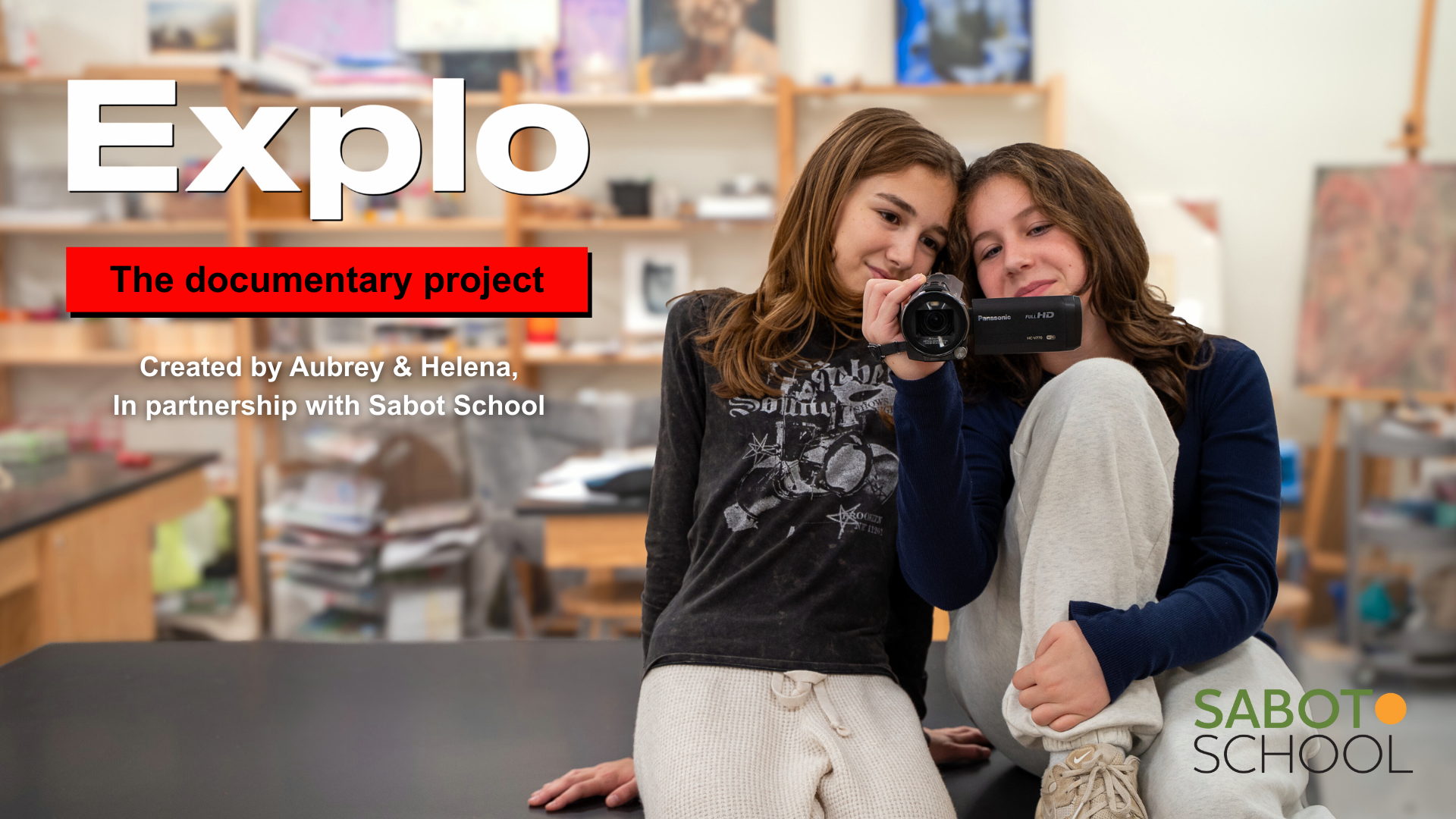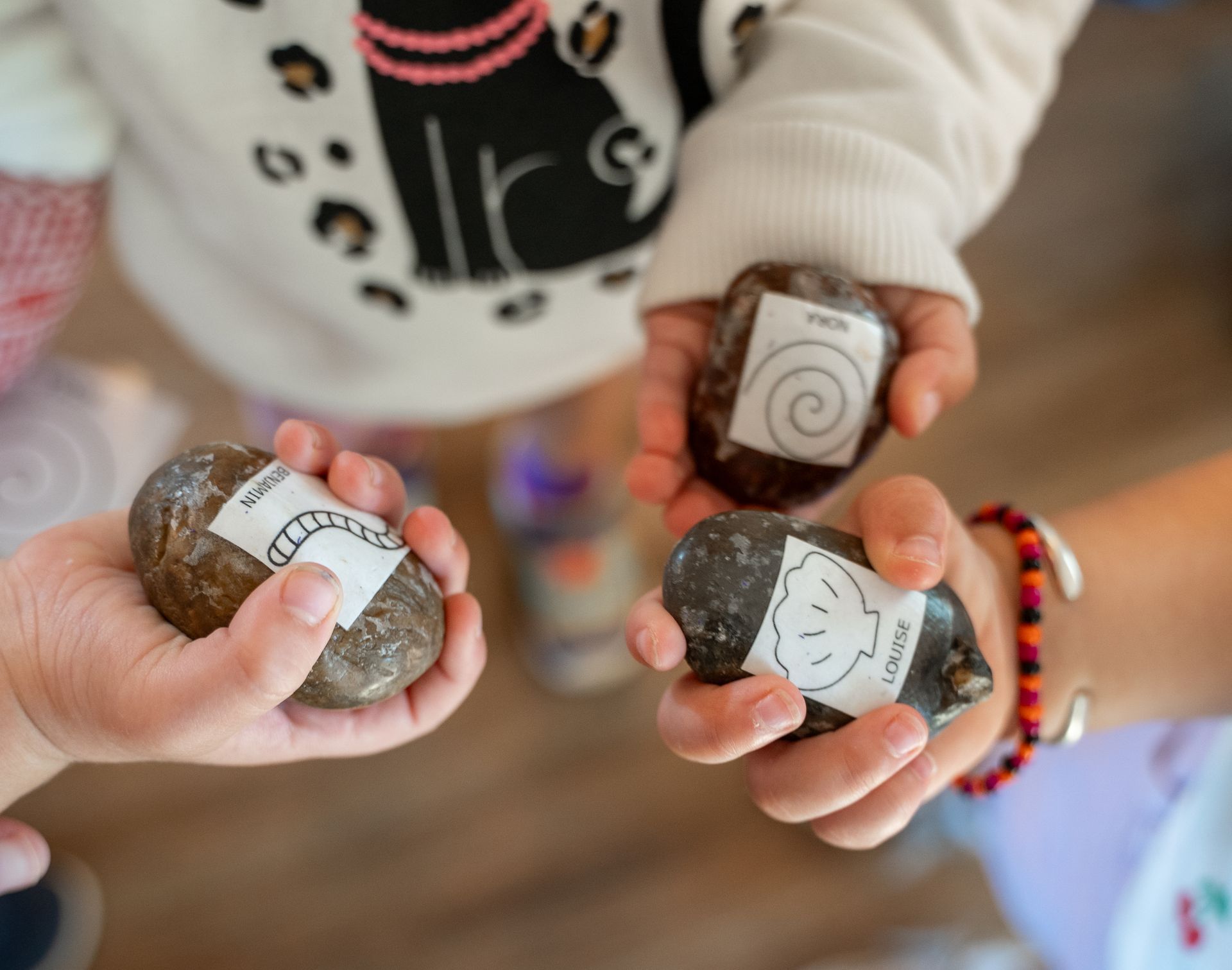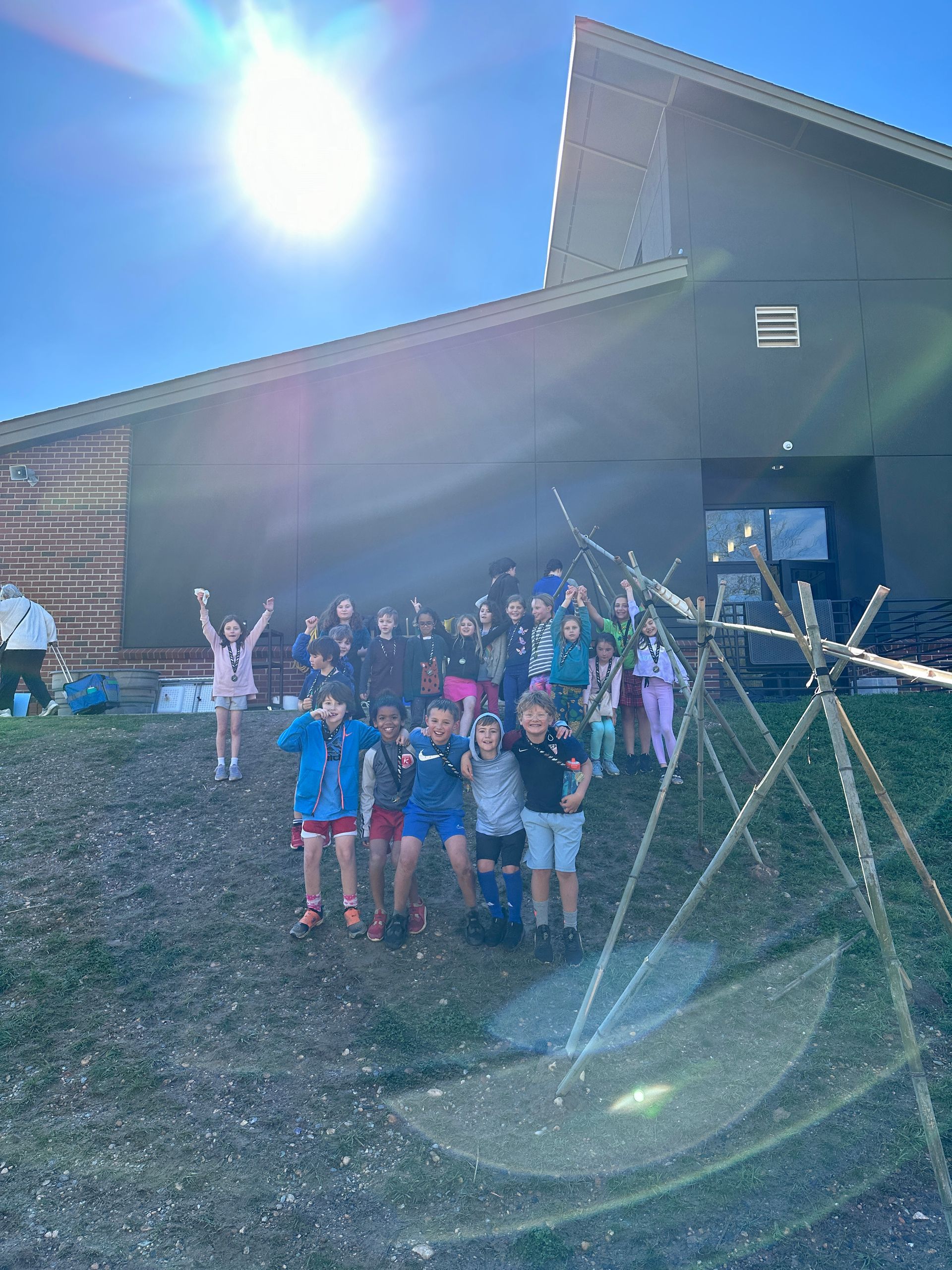Organization
Organization is an important topic for fifth graders and their families, especially as they move into middle school. I, personally, am naturally completely disorganized in many ways.
I have three children. One is completely and utterly organized. She never forgets her lunch, or her papers, or loses her barrettes. One is pretty organized, and uses lists and technology to manage an extremely busy life. The third one is like a reverse force field. He goes through the door and, I swear, things start hurtling away from his body. He and I have worked together for many years around this issue, and we have a few suggestions. They are not all unique to us, but we learned every one of them the hard way.
There are two big categories of organization. Some people can organize ideas, and some people can organize stuff. A few lucky people can do both. Being able to do both is an area of giftedness in my opinion, and it frustrates me when these skills are not valued and respected. It feels easier to me to help with stuff support for people who can, for instance, remember that they have homework, but have forgotten the book.
To organize something, you have to be able to put together what needs to be done, remember it, and you have to either want to do it or be sufficiently averse to the consequences of not doing it to do it anyway.If your child has all three of these things, and they are 10-11, they can usually manage 3 or so categories of things on their own. A category would be: routine homework, medical or orthodontic needs, or sports equipment for one sport. Often, children are given many more categories than that, and they are going to need some help. Or, realistically, they do NOT have time to do everything they have to do, especially since they are just learning how to do it.
It is possible that disorganization can also be a handy tool to defend against doing things you don’t want to. If you don’t have your math book, it is harder to make you do your math homework. So you don’t want to invest a lot of emotions into other people’s lack of organization, but you do have to make sure it does not usually pay off.
Depending on individual strengths and challenges, there is not one system which works for everyone. You have to be prepared to try different things and make changes.
For the basic things, it is really important to make yourself a creature of habit. I have trained myself over years, to touch my essential gear each time I move from one location to another. I look at my keys, phone, and wallet, and I touch them, before I shut a door. Josh does this too, and we have little wooden boxes next to the front door for these objects. They never go farther than the front door. It takes work and practice to make this an iron clad habit, but we have had some fairly spectacular consequences when we failed. This saved me as recently as last night, when I left my phone on the desk at school. I couldn’t see and touch it at the car door, so I went back and found it. I forgot once, but I have 2 checkpoints before I leave school.
If you have a hard time breaking down a task into steps, you will have a hard time getting and staying organized. You will have to go through each task with your child and help them to break it down, including where things may go wrong- which they always will. Try to arrange things so that you put things forward in time as much as possible- for instance, you clean your soccer cleats and put them back in the bag when you return home from the game, not the morning when you need them shortly. This also moves the activity to a time when tensions are lower. A half hour before the big game is not the time to calmly problem solve over missing shoes (ask me how I know this). The backpack papers should be repacked as part of homework, not the next morning. At our house, we had printed and laminated tags on each backpack and sports bag which told what the contents were supposed to be. Bedrooms for the challenged, or in my case, the kitchen, had a cork board of titled lists and flow charts. It is possible for brains to slip in a memory from the day before, so some people need to touch each item in the pack as they go down the list. You can improve your skills with practice here, so it is worth the time investment.
You can’t put things away until they have a place to be. And they have to fit in the place. There should be a designated, agreed upon place in the house for each thing that your child is expected to deal with. It’s fine, in fact preferable, if these spaces reflect family reality. For many of us, clean clothes are put away by putting the laundry basket in the proper room. The clothes stay there. If that works, that’s fine. Your child will need a space to post assignments and place papers that they are done working on but not done studying with. If they work in their rooms, it should be in their rooms. If they do their homework in some other room, it should be there. A porta file box should be fine for this year and next. Eventually, lots of it will migrate to the computer, but you keep graded papers until the final grade is in. Here, in elementary school, they don’t have that kind of averaged grade. But I do want them to look at old tests and reflections to remind themselves of what they want to do before they take a test.
You also have to have a place for all of your other “categories.” Where are the school supplies to do homework with? Where does your sporting equipment go? How about your dance things? In most houses, more than one person processes these things for reuse. So you have to decide with your child- where does this go when it’s dirty? When it’s clean? We had a bag for every sport or activity, and as soon as things were clean they went back in the bag, and the bags went in a giant cupboard in the living room. It’s really near the front door, and near the boxes with keys, wallets and phones.
The organizing rule is- it has to be easier to put back than it is to get out, because once you are done with it, you’re not going to make a lot of effort. If your child has to open, close and move four things to put their back pack away, then they are not going to put it away. I’m not going to put mine away under those conditions either. You may have to have things out in plain sight or taped to your door.
One lesson about organization was taught to me by Josh, and to me it was counter intuitive. I always tried to have extras on hand, so if the original was missing, we could still function. What really happened was that he lost the original, and then the extra. At the end of middle school, he cleaned out more than half of his stuff. He has terrible subject field discrimination, and things disappeared right in front of his face. All the posters, little toys, outgrown legos, trophies and ribbons, books he had read and wasn’t going to read again- out it all went. From then on his personal space was very spartan. He figured out exactly how many of each category of clothes it took him to go a week. From then to now, he owns one week’s worth of clothes, and one of each type of specialty item. He says that that way, he has to deal with missing things right away, before it’s too late. If he felt he had a back up, he would want to wait, and then soon things were missing all over town. That was too overwhelming for him. I was not in favor of this plan at first, but the number of lost things dropped by about 75%.
Fifth graders are just a little bit too young to have unlimited access to technology, but it is a lifesaver. Google Docs saves for you, and you can get to your work from anywhere. With minimal effort on your part, it organizes your stuff too. Google calendar will remind you to do things, and of your due dates. You can put your grocery list on the phone. Also, smart phones are expensive, but they replace many things you can lose. And if you use them all the time, you notice quickly when they are not where they are supposed to be. Next year, your child will have a computer for school, so be prepared to take full advantage of all the organizing that will do for you. And the more times per day they do something with it, the less likely they are to mislay it permanently.
Sometimes, everyone forgets something that they need. It’s better not to get too upset about that, or fuss at the time when emotions are high. That transfers responsibility to you in your child’s mind. You are being mean and unreasonable, and that’s the problem to them. So I really tried to stay calm. BUT, life, especially the fun parts, did not go forward until the problem had been rectified in the best way available. You can call someone to get the homework. You can go back to school and get the book, if the school is still open. Josh took the bus home some days, but when I picked him up, he went through his back pack and his homework list in the parking lot when he could go back and get things conveniently. That saved him about 25% of the time. Just asking if he had things did NOT work. He had to look through the back pack and touch them. You could pull over next to the soccer field and implement this maneuver. You can go over to a friends house, borrow their work, make a copy, or have your mom copy it, white out their copy, make a new copy, return the original, go home and do your homework. Yes, we did that more than once. I didn’t impose extra punishments, but that pretty much ate up the afternoon’s discretionary time, which was not a desirable outcome to him.
Soccer gear got managed in my house when travel soccer started. If you were not at the field on time- defined as stretching 15 minutes early- you were benched for the first half. Missing playing time was enough to make soccer gear management and finding directions a high priority.
Sometimes you can make things easier. I have already talked about how technology can help that. In a simpler way, I used to buy 10 pair of of the cheap black reversible gloves each winter. On glove days, everybody would take two when they left the house and return as many as they had when they returned. We lost about 7 pair per winter, but there were gloves all winter. I bought sport socks in huge identical quantities, so that pairs did not have to be retained, just getting any two socks out would work. Josh didn’t put extra socks in his dresser, but the fact that they all matched made life easier. I am sorry that cargo pants are now unfashionable, because they saved us. You could put something moderately sized in the side pocket and carry it everywhere you went all day. And the pockets usually had a zipper or velcro, so stuff didn’t fall out. If you can make any system easier for the organizationally challenged, it’s worth it.
I found that children under 15 can not usually untangle their systems for organization to deal with more than one category at once. So if piano is next, you can get your books. If piano was last, you can unpack your stuff. But you probably can’t get up in the am, get dressed, take your medicine, eat breakfast, pack your backpack, get your soccer gear together and put your piano books in your backpack. Or if you do, you may not be wearing socks when you get to school.
People and friendships can help too. Josh had perfectly organized friends in middle and high school. They reminded him to get his stuff, turn it in, take it home, due dates had changed. He, on his end, tutored in math and science. There are more than the average number of well organized people in this class, so there are support options. Each year, there is a student who is stellar at organization. I have suggested the other parents would probably pay for a newsletter with due dates, assignments, test dates, and related info, but so far no one has taken me up on it.
It was easier for me to relate disorganization to a medical condition that had to be treated. On the one hand, you wouldn’t yell at someone for having an asthma attack. On the other hand, you would see that the day to day treatment plan and the plan for episodes was followed. And if you found out that the treatment plan was not being followed, you’d follow up at a calm time to figure out how to see that it got done. You wouldn’t yell at your wheezing child.
Under the best of circumstances, people who are ten and eleven can only remember, organize and keep up with so many things. Medical and orthodontic needs are super important, and can’t be skipped, so if your child is managing this, count them twice when you tally up the things they have to keep up with. If you can’t help with the organization for many activities per week, and they can’t do it themselves (this would be the vast, normal, majority) consider cutting back. It is not fair to assume that a general interest in say, piano lessons extended to the specific understanding that this involved sorting one’s books and piano shoes and recital outfit and getting them to the right place. Most of my children’s secondary activities look much less important in retrospect. (Or they didn’t pay off in the way we wanted them to anyway.)
Everyone needs some calm, alone, downtime where there are no demands being made on executive function. Some people need a lot of it. It is also important to have enough experience with household chores to know how to do them when you are on your own, and that takes time. So help your child with organization strategies, because that’s important. But remember that that is not the only important thing people learn to do.
The post Organization appeared first on Sabot at Stony Point.
SHARE THIS POST
















